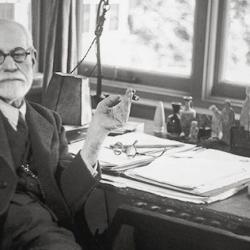Ken Jackson’s Shakespeare & Abraham is not, he says, “a traditional study of literary borrowing or influence that primarily seeks to link Genesis 22 and Shakespeare via philological evidence.” He does note verbal echoes and allusions (Shakespeare’s use of the Abrahamic “Here I am” at critical moments in some plays), but he’s more interested in how Shakespeare uses the story of Abraham’s sacrifice of Isaac to think with: “the real influence of Genesis 22 and its interpretive tradition is seen in the critical, conceptual framework that Shakespeare develops to think through, dramatically speaking, the relationships between religion, sovereignty, law and justice. In short, Shakespeare uses Genesis 22 to understand the world—and to pray” (1-2).
Jackson’s discussion of the Abrahamic background to Richard II provides a good illustration of what he’s about. The play begins and ends with scenes in which fathers are asked to sacrifice sons in some way or other. But the more important role of the biblical story is to provide a background for the fundamental political issues that the play raises—essentially, questions surrounding the divine right of kings. Is there a divine Law beyond the law that demands total commitment to the point of self- or filial-sacrifice?
From this angle, York is the key figure in the play. Shakespeare cleverly associates York with Abraham in Act 4, when Bolingbroke announces the death of Norfolk with “Sweet peace conduct his sweet soul to the bosom / of Good of Abraham” (4.1.104-5). Immediately, on cue,”Enter York” (quoted, p. 77).
Jackson explains why York is so thematically important: He “may not be a commanding presence, but he embodies the devotion to the divine Law beyond the law that both Richard and Gaunt incorrectly assumed they possessed. If I am correct that Gaunt becomes aware that his devotion to the Law beyond the law is less than absolute only at the banishment of Bolingbroke, and that Richard still mistakenly assumes his own being corresponds to this unknowable Law beyond the law, then York stands out as a stark contrast to both in that his respect for the otherness of the Law beyond the law is unquestionably absolute from start to . . . finish” because in York “Shakespeare comes to dramatic terms with the impossible demand of the royal prerogative, the demand that a monarch simultaneously use exceptional sovereign power but utterly abandon his self-interests” (74).
The Abrahamic echoes in Titus Andronicus are louder, and, once noted, quite illuminating. Jackson spends a good bit of the chapter on Titus contrasting Titus to Aaron the Moor. In Shakespeare’s England, these characters set the parameters of the hostile powers that threaten England—the Catholic church and the Ottomans (83). Jackson also notes the juxtaposition of Jewish and Islamic names in “Aaron the Moor.”
Titus and Aaron are different principally in their willingness or unwillingness to sacrifice their children. For most readers, Titus is the villain and Aaron the hero in hist regard. For all his scheming, Aaron at least refuses to kill his own sons; Titus on the other hand leaves behind a small army of dead relatives. Jackson argues, though, that “In his unflinching willingness to sacrifice children, the Roman Titus stands closer to Abraham and the Abrahamic gift than the self-centered Jew/Muslim Aaron, who is willing to give up all of Rome to save his son. This is true of Titus’s later sacrifice of Lavinia as well. In his revenge, Titus seeks to resconstitute the sacrificial logic of Roman law. Before sacrificing Lavinia, before giving the ‘charitable murder’ she pleaded for earlier, Titus turns to Saturninus for a a ruling based on legal precedent. . . . Titus reestablishes the religious piety —his willingness to give completely, everything, absolutely to Rome—that had been interrupted by the presence of the Goths and Aaron the Moor” (92).
Given his aims, some of Jackson’s interpretation are inevitably unconvincing. But the more basic question is whether the Abrahamic structures that do exist always lead to an endorsement of the Abrahamic character. Titus may be an Abraham in his utter devotion, but his devotion is to Rome not God. Titus’ pietas may gesture toward Abrahamic faith, but the gesture is from a distance.














